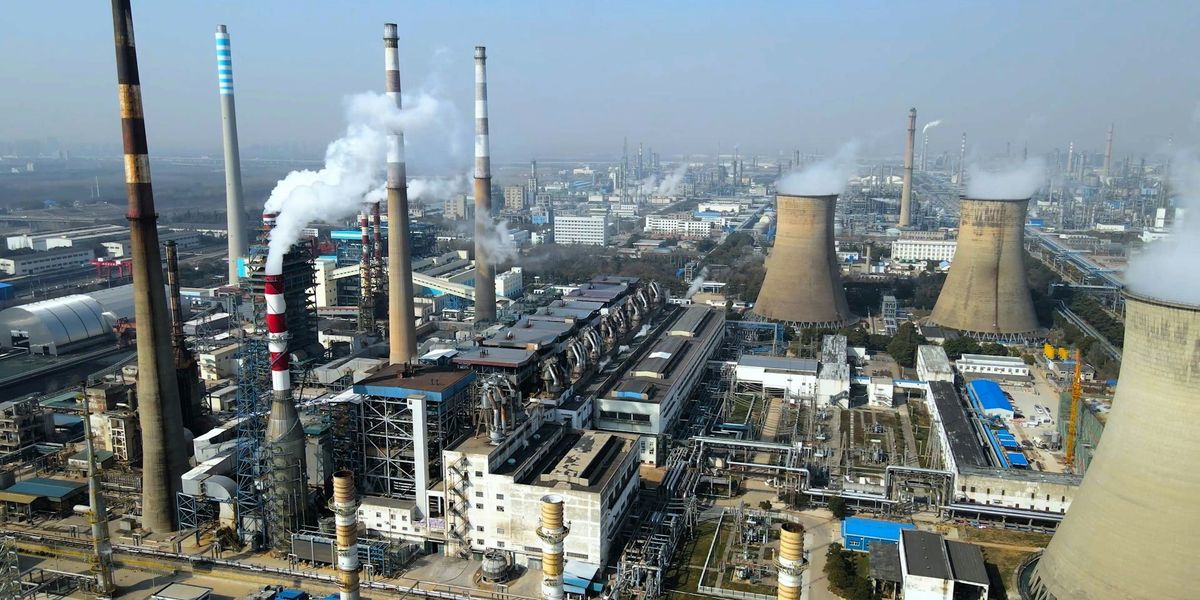fund
New climate reparations fund embarks on challenging setup phase
A new global climate reparations fund begins its intricate setup, aiming to address damages faced by developing nations due to climate change.
In short:
- A 26-member board is convening to establish operational guidelines for the UN's loss and damage fund.
- Key decisions include selecting a host country, defining recipient eligibility, and determining the World Bank's role as a potential fund manager.
- Initial disagreements have emerged over the World Bank's conditions for managing the fund, complicating the process.
Key quote:
“There’s sort of the elephant-in-the-room question, which is when is the fund actually going to get meaningful amounts of money.”
— Brandon Wu, director of policy and campaigns, ActionAid USA
Why this matters:
The anticipated guidelines will likely grapple with equitable distribution of resources and the prioritization of projects. This goes beyond mere fiscal responsibility; it's about carving a pathway to resilience for communities that have borne the brunt of a warming planet without contributing significantly to its cause. There's a palpable hope that the fund, once operational, will not only compensate for losses but also fortify against future damages, incorporating health considerations as part of its environmental calculus.
Op-ed: Mourning family and climate change in the age of loss and damage.
Biden's new budget includes funds for climate change initiatives
President Joe Biden has proposed significant funding toward the United Nations Green Climate Fund in his latest budget plan.
In short:
- Biden's fiscal 2025 budget aims to fulfill a pledge to the United Nations by proposing $500 million for the Green Climate Fund, with gradual increases up to $1 billion by 2028.
- The proposal includes making these funds mandatory to ensure they are shielded from political fluctuations, highlighting the administration's commitment to international climate finance.
- The plan is part of the President’s Emergency Plan for Adaptation and Resilience, targeting over half a billion people in developing countries to adapt to climate change impacts.
Key quote:
"This funding will unlock private capital that will enhance energy security by diversifying energy sources, help countries to reduce their emissions, enable the most vulnerable to adapt to climate change, and strengthen the resilience of their economies and critical infrastructure.”
— U.S. State Department
Why this matters:
President Biden's budgetary commitment underscores a significant U.S. re-engagement with global climate finance, signaling a shift toward more sustainable energy sources and resilience against climate change.
In 2021, Kartik Amaranth argued that methods of investing, lending, and risk assessment must change to prioritize equity.
Nuclear energy's resurgence in US policy spotlight
In Washington, a revitalized push for nuclear energy is gaining bipartisan support, offering a fresh direction for an industry plagued by past setbacks.
In short:
- New legislation and Biden administration policies are breathing life into the nuclear power sector, marking a significant shift toward embracing it as a key carbon-free energy source.
- Billions of dollars are being funneled into advancing nuclear technology and domestic uranium production, indicating strong bipartisan agreement on its importance for America's energy future.
- Regulatory changes aim to streamline the licensing process for advanced reactors, promising to expedite the development of cleaner, more efficient nuclear energy.
Key quote:
"There’s a feeling of optimism within the industry, that things are finally lining up."
— Lesley Jantarasami, managing director of the energy program at the Bipartisan Policy Center
Why this matters:
Advocates argue that nuclear energy can provide a reliable, steady supply of electricity, unlike some renewable sources such as wind and solar, which are intermittent and depend on weather conditions. This reliability makes nuclear a potentially critical player in achieving a balanced, sustainable energy mix capable of meeting global energy demands while significantly reducing carbon emissions.
What a difference six years makes: “Far from the fire and fury of headline-grabbing Trump dramas, the apparent slow death of nuclear power plays on.”
Investors with $39 trillion urge government to plan fossil fuel phase out
Religious leaders urge banks to stop financing drivers of climate change
Stanford University given $1.1 bln by venture capitalist for climate change school
Financial groups seek 'clear, credible and ambitious' climate action from G20
Financial services groups responsible for more than $90 trillion in assets have called for the leaders of the world's largest economies to push through "clear, credible and ambitious" policies to battle climate change.



















